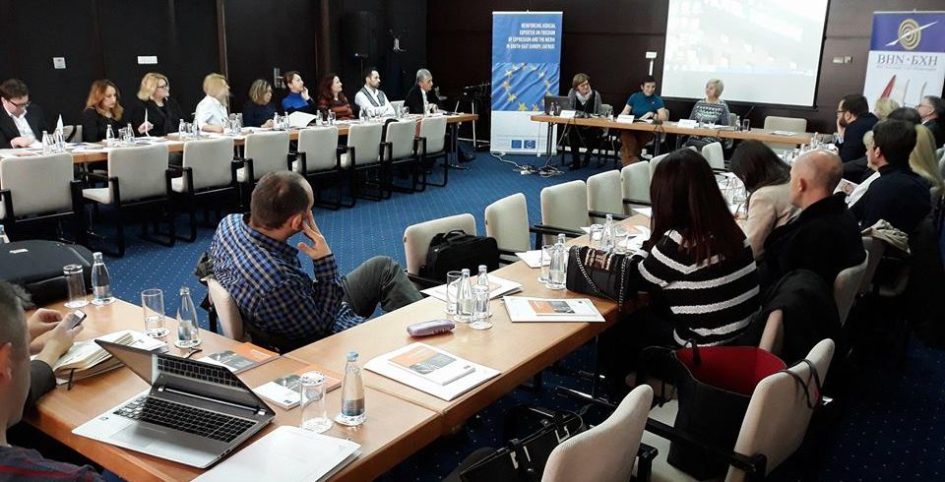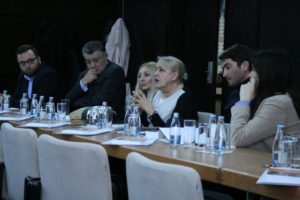 SARAJEVO, 15.03.2018. – In Bosnia and Herzegovina, there are certain formal and legal restrictions on the freedom of expression and work of journalists that are not necessary for a democratic society nor in accordance with European standards, but are an instrument of political pressure on the media, it was noted, inter alia, at the seminar on restrictions on freedom Expressions in BiH that started today in Sarajevo.
SARAJEVO, 15.03.2018. – In Bosnia and Herzegovina, there are certain formal and legal restrictions on the freedom of expression and work of journalists that are not necessary for a democratic society nor in accordance with European standards, but are an instrument of political pressure on the media, it was noted, inter alia, at the seminar on restrictions on freedom Expressions in BiH that started today in Sarajevo.
Participants emphasized that freedom of expression is limited by the application of the Defamation Laws and that is not in line with European standards. The non-compliance with the provisions of the Law on Freedom of Access to Information, formal legal decisions made by institutions which restrict access to public events, and the procedure of choosing the administration of public services are not in line with European standards as well.
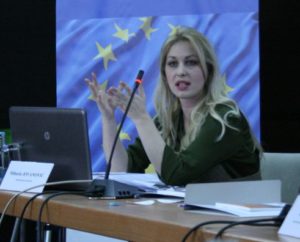 Mihaela Jovanović, judge of the Municipal Court in Živinice, presented the basic principles of freedom of expression that promote Article 10 of the European Convention on Human Rights (ECHR).
Mihaela Jovanović, judge of the Municipal Court in Živinice, presented the basic principles of freedom of expression that promote Article 10 of the European Convention on Human Rights (ECHR).
“Freedom of expression is not an absolute right and it can be subject to certain formalities, conditions, restrictions or penalties prescribed by law, that are necessary in a democratic society, and in the interests of limiting the rights of other persons or protecting the public interest,” Jovanovic recalled the openion of the European Court of Human Rights (ECHR), which implies a broad interpretation of Article 10 of the ECHR, and a narrow and restrictive interpretation of the exceptions provided for by the legal provisions.
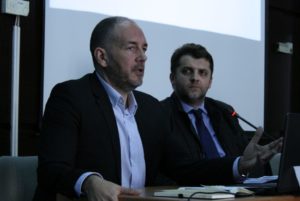 Lawyer and international expert Dušan Stojković said that what is said can lead to violation of someone else’s rights, affect the speaker or to the one they are talking about, but also to the wider social community. “For this reason the reasons for the restrictions must be clearly defined and bounded. Otherwise, if restrictions and criteria are not sufficiently precisely defined through laws, people will be afraid to speak for fear of sanctions, “Stojković said, adding that in the digital environment this issue is even more significant due to the specific nature of the media environment.
Lawyer and international expert Dušan Stojković said that what is said can lead to violation of someone else’s rights, affect the speaker or to the one they are talking about, but also to the wider social community. “For this reason the reasons for the restrictions must be clearly defined and bounded. Otherwise, if restrictions and criteria are not sufficiently precisely defined through laws, people will be afraid to speak for fear of sanctions, “Stojković said, adding that in the digital environment this issue is even more significant due to the specific nature of the media environment.
Aladin Alagić, editor of Center for Investigative Reporting (CIN), evaluated law suits for defamation as restricting for the work of media, and pointed out that certain mechanisms that help this media outlet to avoid a law suit or turn law restrictions in their favor exist.
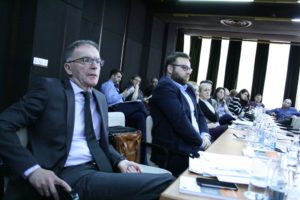 “We try to avoid lawsuits through a detailed examination of all facts of the story, as well as by avoiding the violation of the reputation and honor of the people we are writing about,” he said.
“We try to avoid lawsuits through a detailed examination of all facts of the story, as well as by avoiding the violation of the reputation and honor of the people we are writing about,” he said.
Besides, for the work of journalists from CIN there is often the problem of refusing to act according to the Law on Freedom of Access to Information by the institutions from which information is sought. “In cases where we do not receive an information or an answer within the legally prescribed deadline, we have decided to file complaints for disobeying the Law on Freedom of Access to Information. CIN has so far received eight verdicts for refusing to provide information. ”
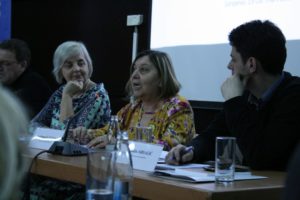 Journalist of Oslobođenje, Gordana Katana said that “limiting access to public events in public institutions to certain journalists and media outlets is pressuring the media and limiting the right to journalistic work.”
Journalist of Oslobođenje, Gordana Katana said that “limiting access to public events in public institutions to certain journalists and media outlets is pressuring the media and limiting the right to journalistic work.”
Inter-professional seminar “The restrictions on freedom of expression in BiH: an instrument of political pressure against journalists / media and / or the legitimate application of European standards and Article 10 of the European Convention on Human Rights “brought together more than 40 participants, representatives of the judiciary, lawyers, journalists, editors and experts in the field of media law .
The two day workshop was organized by CoE and BH Journalists Association within the project JUFREX – common project of EU and CoE – Strengthening judicial expertise on freedom of speech in the media of Southeast Europe.


